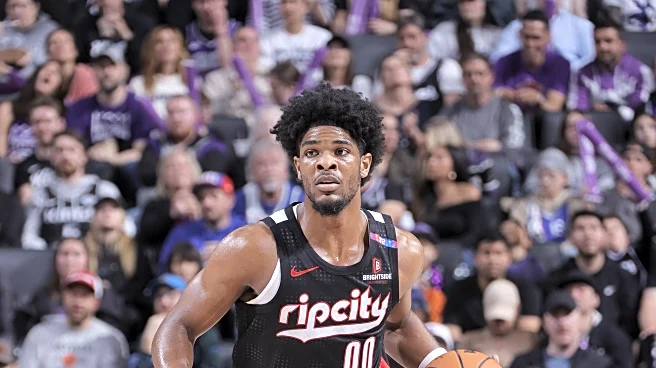Portland Trail Blazers training camp is underway and the first preseason game is almost upon us. In just a couple weeks we’ll watch the advent of the 2024-25 regular-season campaign. As the annual festivities
unfold, we’re examining some of the questions the Blazers will need to answer before we can trust in a potential Renaissance in the new year. First we looked at the halfcourt offense through the lens of three-point shooting. Then we examined the transition game, their ability to rebound, and a new emphasis on defense. As we conclude this series, we’ll look at one nagging detail that could hamstring the Blazers as they journey forward: turnovers.
Portland, along with about 20 other teams, will enter the season preaching the mantra of strong defense coupled with fast, opportunistic offense. Generating and maintaining a turnover advantage is a powerful part of that game plan. Nobody exemplified this better than the World Champion Oklahoma City Thunder who led the league, forcing an incredible 17.3 turnovers per game last year. Strong, interchangeable, mobile defenders with busy hands, deep up and down the roster: this is the archetype of the New NBA, circa 2025.
The Blazers did pretty well last season, forcing 15.5 turnovers per game themselves, good for 6th in the league. Their turnovers forced per possession rate was just over 15%, 5th overall. That’s a super positive start.
The issue comes on the other end. The Blazers committed 16.0 turnovers per game themselves, 29th among 30 NBA teams. They were also 29th in turnovers per possession at 15.5%.
In other words, Portland was worse at coughing up turnovers than they were at generating them. That nullifies the advantage they’re trying to build, turning a strong positive into a neutral, at best.
The Blazers will need to shore up the turnover game if they want to make better defense a decisive factor. It wouldn’t hurt to generate a few more transition points off of turnovers as well.
Whether they’ll be able to do that is an open question. The question that immediately follows: Who, exactly, is their point guard?
The most obvious answer is Scoot Henderson. After a couple seasons of ups and downs, the third-year guard should be ready to take the helm of the offense. But Henderson, so far, has been part of the turnover problem more than the solution. In his rookie campaign he led the league with 5.9 turnovers committed per 100 possessions. He trimmed that to 4.9 his second year but his turnover percentage of 18.6% (or an estimate of 18.6 turnovers committed per 100 total plays) was 5th-worst in the NBA. If Scoot is going to start, this is one of the areas he’ll need to address.
Behind Scoot stands Jrue Holiday. The 16-year veteran does not give up nearly as many turnovers as Scoot, only 2.0 per 100 possessions with an 11.3% turnover percentage. But Holiday may not be a true point guard anymore, or at least not one who will eat 36 minutes of time. He’s certainly a more secure option, though. Going with Holiday as a reconverted primary point guard would address this issue. The cost will be developmental time for Henderson.
Portland is exactly one Holiday injury away from riding the ragged edge at the position. After Jrue, the safety net is nonexistent. Damian Lillard is injured and not expected to play this season. The next likeliest ballhandler is Deni Avdija. He commits almost as many turnovers as Scoot: 4.4 per 100 possessions, 16.3% turnover percentage, 14th overall in the NBA.
Everywhere you look, except Holiday, Portland remains a turnover threat…and not in the good way.
Offensive and defensive schemes are great. Unless the Blazers can control the ball on one end, harassing across the court on the other won’t make nearly as much difference as it should. Their season won’t rise or fall on this issue alone, but it’s going to slant the results of their play one way or the other. Chances are Head Coach Chauncey Billups is preaching about taking care of the ball during training camp. If it’s not a focus this season, the Blazers will have a much harder time generating the forward momentum they desperately need.









